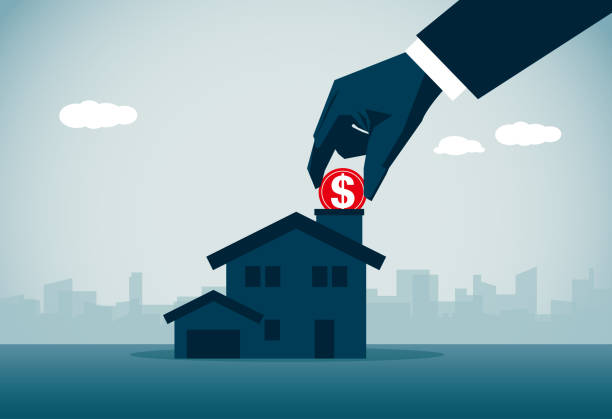Table of Contents
Real estate represents one of the most significant sectors of the global economy, encompassing residential, commercial, and industrial properties. This article delves into the various aspects of real estate, including its investment potential, market dynamics, buying and selling processes, and the broader economic impact.

Understanding Real Estate
Real estate refers to property consisting of land and buildings, including natural resources such as minerals, water, and crops. It plays a crucial role in the economy, serving both as a tangible asset for investment and as essential infrastructure for residential and commercial purposes.
Investment Potential
Investing in real estate offers several advantages:
- Appreciation: Properties tend to appreciate in value over time, providing potential capital gains for investors.
- Income Generation: Rental properties generate ongoing income through monthly rent payments, providing a steady cash flow.
- Portfolio Diversification: Real estate investments diversify portfolios, reducing overall investment risk compared to stocks and bonds.
- Tax Benefits: Investors may benefit from tax deductions on mortgage interest, property taxes, depreciation, and maintenance expenses.
Types of Real Estate
- Residential Real Estate: Includes single-family homes, condominiums, townhouses, and multifamily residences intended for occupancy as homes.
- Commercial Real Estate: Comprises properties used for business purposes, such as office buildings, retail spaces, hotels, and industrial facilities.
- Industrial Real Estate: Includes warehouses, manufacturing facilities, distribution centers, and other properties used for industrial operations.

Market Dynamics
Real estate markets are influenced by various factors:
- Supply and Demand: Market conditions fluctuate based on the balance between available properties (supply) and prospective buyers or tenants (demand).
- Economic Factors: Interest rates, employment levels, economic growth, and consumer confidence impact property prices and market activity.
- Location: The desirability of a location, including factors like proximity to amenities, schools, transportation, and job opportunities, affects property values.
Buying and Selling Process
- Property Search: Buyers search for properties based on budget, location preferences, size, and amenities.
- Financing: Securing a mortgage or funding to purchase the property, considering down payments, interest rates, and loan terms.
- Negotiation: Negotiating the purchase price and terms of sale with the seller or their representative.
- Due Diligence: Conducting inspections, appraisals, and verifying legal aspects such as property titles and zoning regulations.
- Closing: Completing the transaction, transferring ownership, and finalizing legal and financial obligations.
Economic Impact
Real estate plays a pivotal role in economic growth:
- Employment: The construction, development, and management of real estate contribute to job creation in various sectors.
- Revenue Generation: Property taxes, transaction fees, and rental income generate revenue for governments and local municipalities.
- Economic Stability: A healthy real estate market reflects economic stability and consumer confidence, influencing overall economic performance.
Challenges in Real Estate
- Market Volatility: Fluctuations in property prices and market conditions can impact investment returns and profitability.
- Regulatory Changes: Changes in zoning laws, tax policies, and regulations can affect property values and investment strategies.
- Maintenance and Upkeep: Property maintenance, repairs, and renovations require ongoing investment and management.

Future Trends in Real Estate
- Sustainability: Increasing focus on green buildings, energy efficiency, and environmentally sustainable practices in real estate development.
- Technology Integration: Adoption of smart technologies, IoT (Internet of Things), and AI (Artificial Intelligence) for property management, security, and efficiency.
Conclusion
Real estate remains a cornerstone of economic activity, offering opportunities for investment, homeownership, and business development. Understanding market dynamics, investment potential, and the buying/selling process is essential for individuals and businesses navigating the real estate landscape. Whether as a long-term investment strategy, a source of rental income, or a place to call home, real estate plays a fundamental role in shaping communities and driving economic growth. As markets evolve and new trends emerge, embracing innovation, sustainability, and strategic planning will continue to define success in the dynamic world of real estate.